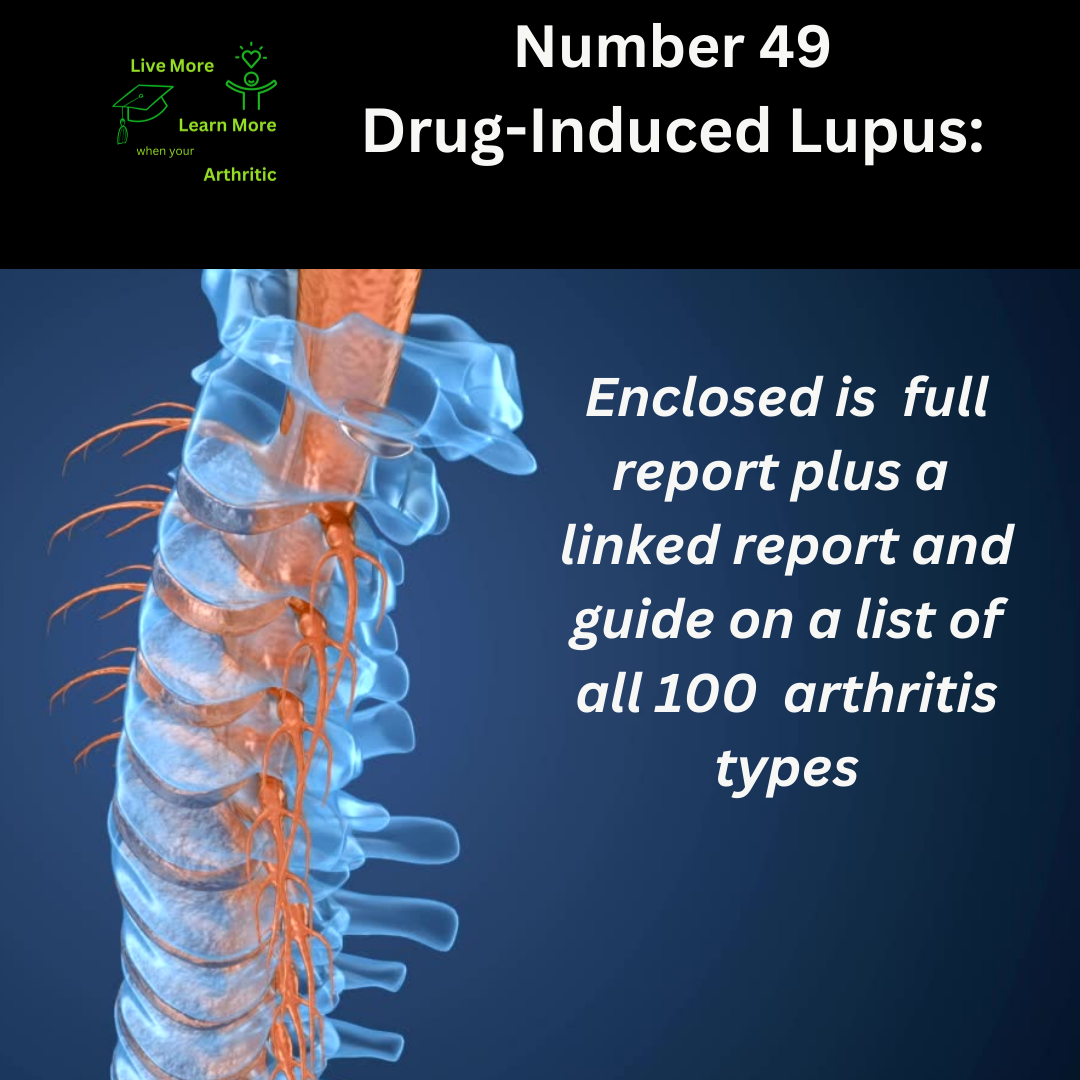
Drug-Induced Lupus: Number 49 on the list of 100 types of Arthritis
Exploring Drug-Induced Lupus: A Personal Voyage
Welcome to the world of Drug-Induced Lupus—an unexpected chapter in the story of autoimmune conditions. Together, let’s navigate this landscape with empathy, insight, and resilience.
 Understanding DIL: Unveiling the Condition
Understanding DIL: Unveiling the Condition
Drug-Induced Lupus is a rare condition triggered by certain medications, causing lupus-like symptoms that typically resolve once the medication is discontinued. It mimics systemic lupus erythematosus (SLE) but usually presents with milder symptoms.
Causes and Triggers: The Intricacies Unveiled
DIL arises from a complex interplay of genetic susceptibility and exposure to specific medications known to induce lupus-like symptoms. Common triggers include medications used to treat conditions like hypertension, heart disease, and seizures.
3 more articles on Lupus you might enjoy:
Symptoms: Decoding the Language of the Body
DIL manifests through a spectrum of symptoms:
- Joint Pain: Aching or swelling in the joints, often mimicking arthritis symptoms.
- Fatigue: Persistent exhaustion that impacts daily activities.
- Skin Rashes: Red, raised patches on sun-exposed areas.
- Fever: Low-grade fever that accompanies flare-ups.
Age of Onset: Mapping Life’s Chapters
DIL typically affects individuals between 20 and 50 years old, with women more commonly affected than men. Age becomes a pivotal narrative thread in understanding and managing the condition.
Proactive Living: Nurturing Vitality Amidst Challenges
A proactive approach nurtures quality of life:
- Medication Management: Collaborate closely with healthcare providers to monitor and adjust medications.
- Lifestyle Modifications: Prioritize rest, stress management, and a balanced diet to support overall well-being.
 Complications: Navigating the Terrain Ahead
Complications: Navigating the Terrain Ahead
DIL can lead to potential complications, such as kidney inflammation (nephritis), heart inflammation (myocarditis), or neurological symptoms. Vigilance and comprehensive care are paramount.
Natural Insights: Embracing Holistic Well-Being
Nature offers potential benefits and pathways to support wellness:
- Anti-Inflammatory Diet: Incorporate foods rich in antioxidants, omega-3 fatty acids, and probiotics to reduce inflammation.
- Mind-Body Practices: Engage in yoga, meditation, or tai chi to promote relaxation and emotional resilience.
Interconnected Narratives: Embracing Awareness
Stay attuned to interconnected health stories—medication interactions, genetic predispositions, and lifestyle factors. Awareness becomes our compass in navigating the complexities of health.
Beyond Diagnosis: Crafting a Narrative of Resilience
In the heart of Drug-Induced Lupus, humor becomes a tool of adaptation, and compassion a beacon of hope. Embrace the journey with courage, forging a narrative of resilience and renewal.